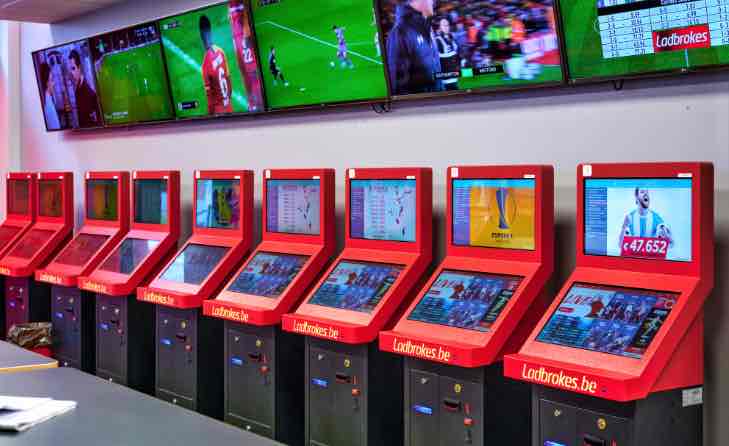

Press release
08/2022
Gambling: when the National Lottery unduly controls private operators
This can be explained by the fact that the National Lottery is not subject to the Law on games of chance of 7 May 1999, but to the Law of 19 April 2002 relating to the rationalisation of the operation and management of the National Lottery. The National Lottery is therefore currently free to determine how its control is organised. On the other hand, it sits on the CHJ and can therefore control private operators, which constitutes a flagrant inequity of treatment in a market segment where the public and private operators are in competition. The gaming and betting company Ladbrokes filed an application for annulment against the Belgian State. It challenges the appointment of the members of the Gambling Commission as it is set. In the commission, sits a French-speaking representative and a Dutch-speaking representative of the minister who has the National Lottery in his portfolio, "or Frank Vandenbroucke," says the text.
The Gambling Commission was established by the law of May 7, 1999, Article 9 of which states that "It is established within the Federal Public Service Justice, under the name of 'Gambling Commission', hereinafter referred to as the Commission, a body of advice, decision and control in the field of gambling, whose seat is established in the administrative district of Brussels-Capital. The commission is assisted by a secretariat." Its missions: to control compliance with the law and its implementing decrees and to impose administrative sanctions, which can go as far as suspension and withdrawal of the license.
Article 10 of the law of May 7, 1999 provides that the Commission is composed of the following members: a president, twelve effective members of whom no more than two-thirds may be of the same sex, and twelve substitute members of whom no more than two-thirds may be of the same sex. The mandates of the members of the Gambling Commission were granted for a period of 6 years by the contested Royal Decree, dated May 30, 2021 and published in the Belgian Official Gazette of June 2, 2021. Among the effective members: "a French-speaking and a Dutch-speaking representative of the minister who has the National Lottery in his attributions".
A discriminatory differential treatment
For Ladbrokes, "this representation of the Minister in charge of the National Lottery results in an unjustified and in any case disproportionate difference in treatment between the operators of fixed betting agencies, which do not benefit from any particular representation within the Gaming Commission, unlike the National Lottery, which nevertheless carries out competing activities, and this without any reasonable justification." This political representation is discriminatory.
And the risk of differential treatment is not purely hypothetical. The Commission's competences, particularly in that it grants licences and sanctions licence holders, mean that the National Lottery can, through this political representation, benefit - albeit indirectly - from a competitive advantage.
Indeed, as an example, "the Commission can sanction two private operators, to the benefit of the National Lottery which, as a reminder, carries out exactly the same sports betting activities as Ladbrokes through its scoooore.be site. The Commission can also, as it does now, favor the National Lottery by not sanctioning it when it does not comply with the Commission's usual jurisprudence regarding bonuses and gifts," the petition states.
Moreover, "the National Lottery develops its sports betting activity in collaboration with booksellers, who can also market sports bets. It is therefore in its interest to give preference to booksellers who are likely to market Scooore.be's products". The current situation demonstrates that the National Lottery benefits from an unjustified leniency with regard to its practices that are contrary to free competition and to the law of May 7, 1999, which the Commission must however ensure is respected.
An abuse of a dominant position
This representation of the National Lottery's interests is also likely to create a situation in which the National Lottery is led to commit an abuse of a dominant position contrary to articles 102 and 106 of the Treaty on the Functioning of the European Union.
According to the case law of the Court of Justice of the EU: "a Member State infringes the prohibitions laid down by those two provisions where the undertaking in question is induced, by the mere exercise of the special or exclusive rights conferred on it, to exploit its dominant position in an abusive manner or where those rights are likely to create a situation in which that undertaking is led to commit such abuses".
Ladbrokes does not seek in its application for annulment to extend the composition of the Gambling Commission to include representatives of the private sector. "It understands and fully respects the requirement of neutrality of the members of the Commission".
On the other hand, in the interest of fairness to all players in the sector, it requests that "no political representative of the National Lottery sits on the Commission, precisely to ensure this neutrality in the treatment."
By providing for political representatives of an operator to sit on the Commission, even though this operator carries out the same activities and is subject to the same legal provisions in terms of activity or the fight against gambling addiction, the legislator creates an unjustified difference in treatment between the public sector and private operators.
Click here to read the article.